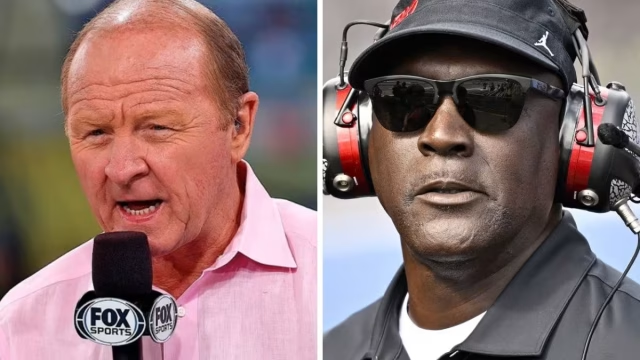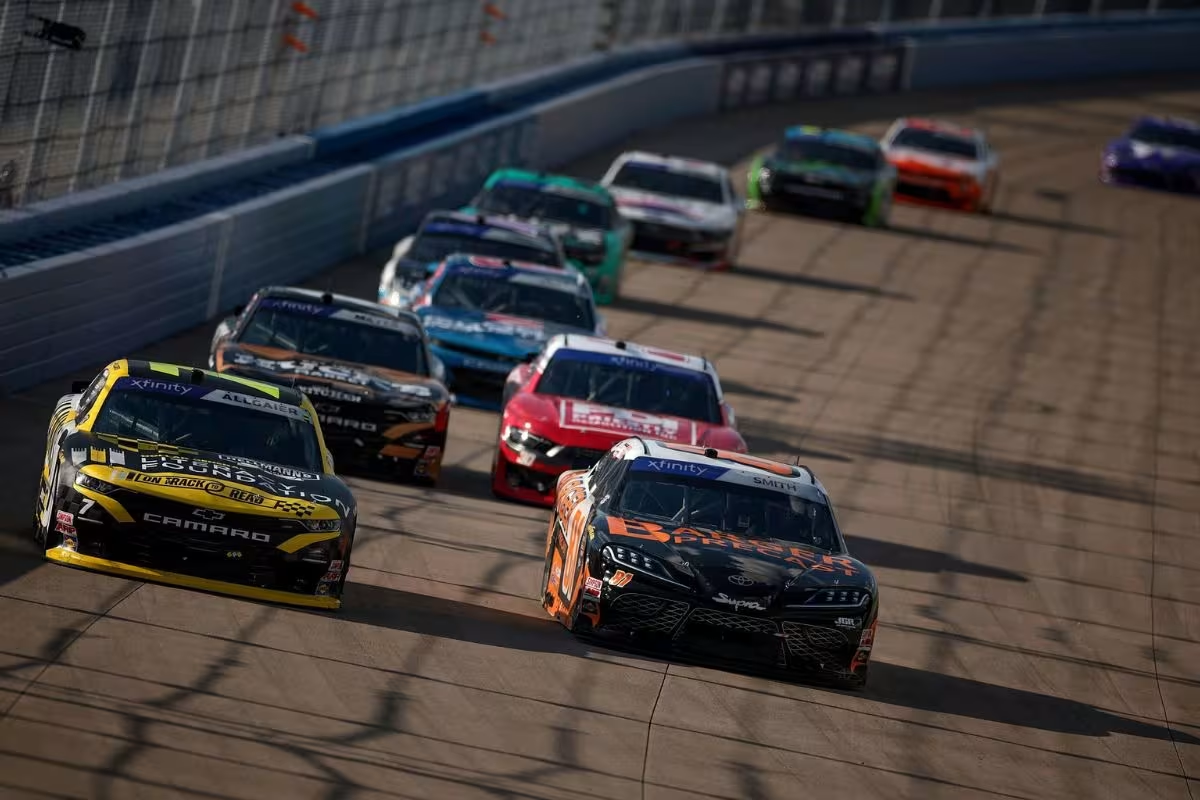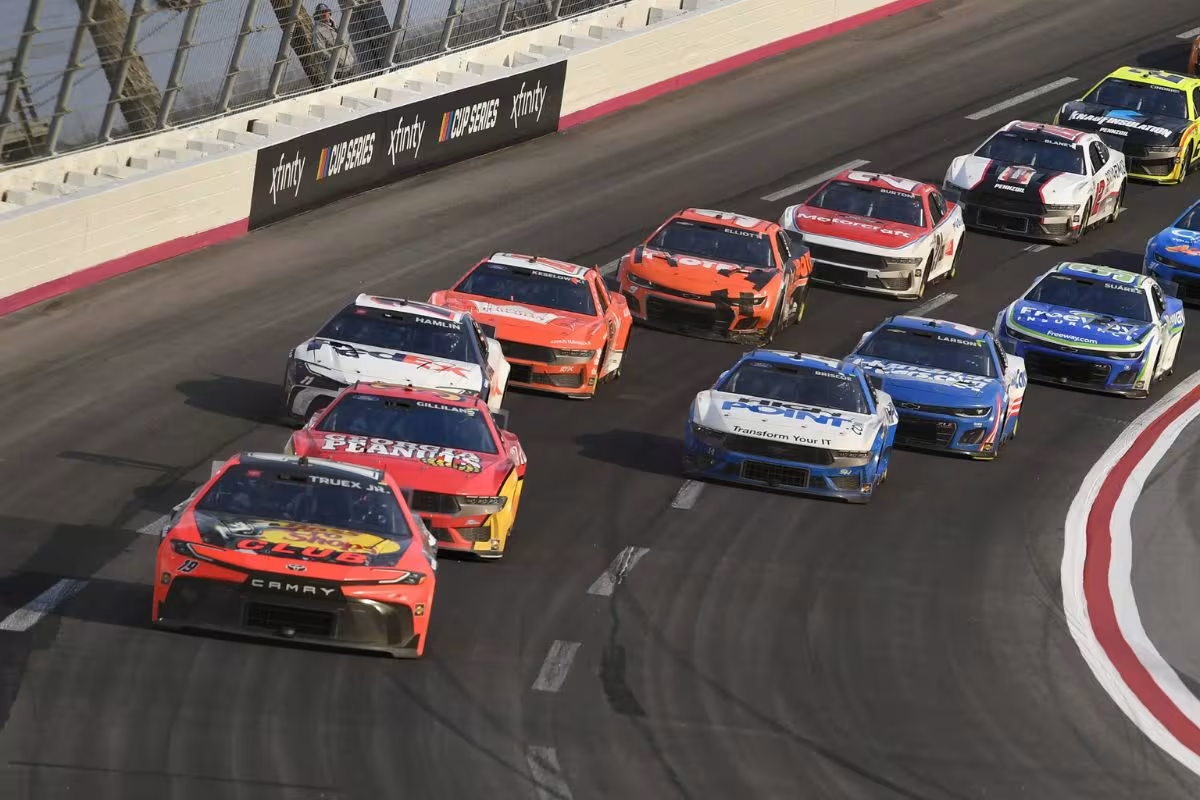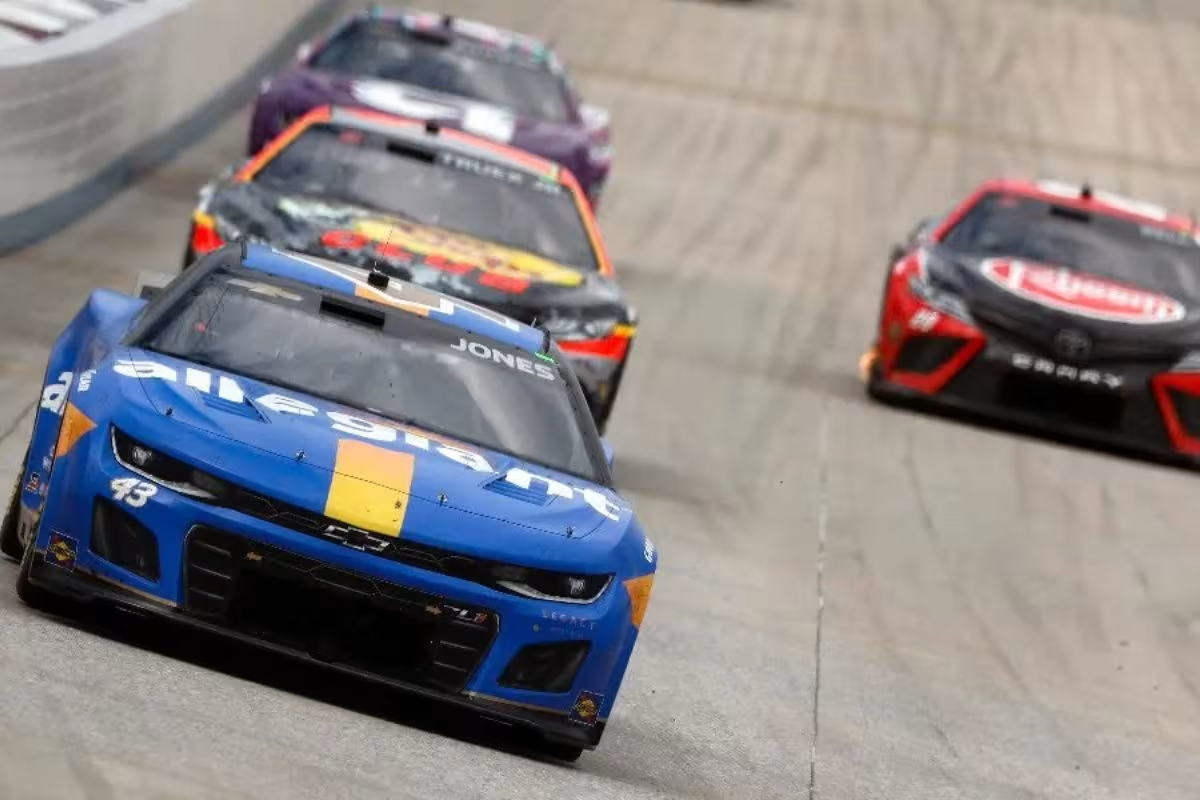Larry McReynolds Slams Michael Jordan’s Claims: The NASCAR landscape is undergoing a seismic shift as a groundbreaking lawsuit disrupts the 76-year monopoly of the France family. While Michael Jordan and his partners advocate for change, many traditional figures express doubt, questioning the need to alter a system that has long thrived. Veteran crew chief Larry McReynolds, a former ally of Richard Petty, has openly criticized Jordan’s youthful approach. This clash between innovation and tradition is shaping a crucial moment in the sport’s history.
Key Highlights
- Larry McReynolds expresses skepticism about younger teams, like 23XI Racing, challenging NASCAR’s established norms and monopoly.
- He emphasizes the historical wisdom of veteran team owners who support the current NASCAR business model.
- McReynolds warns that disrupting NASCAR’s status quo may lead to greater tensions within the sport’s ecosystem.
- Veteran owners, despite accepting the charter deal, feel pressured by NASCAR’s governance and question its monopoly.
- The ongoing lawsuit may redefine power dynamics in NASCAR, but risks for teams are significant amid financial and contractual commitments.
NASCAR’s Monopolistic Control and Lawsuit Turmoil
In the wake of a groundbreaking lawsuit, NASCAR finds itself at a pivotal crossroads, where its longstanding monopolistic control is being scrutinized like never before. For 76 years, the France family has maintained an iron grip on the sport, dictating everything from racing regulations to the specifications of car components.
The current legal challenge marks a critical juncture for NASCAR, as the dynamics of power and control are being questioned by influential figures, including Michael Jordan. This disruption is met with skepticism from traditionalists, who argue that the sport has thrived under the existing regime.
However, the lawsuit highlights a growing sentiment that the sport must evolve to remain relevant in a changing landscape. The tension between innovation and tradition creates a complex scenario where the potential for reform exists alongside the risk of destabilization.
As NASCAR navigates this tumultuous period, it faces the challenge of reconciling its historical roots with the demands of a new generation of stakeholders who seek to redefine what success in racing looks like.
Veteran Scoffs at NASCAR Lawsuit
In the midst of the swirling controversy surrounding the recent NASCAR lawsuit, veteran figure Larry McReynolds has voiced doubt regarding the motives behind the legal challenge initiated by 23XI Racing and Front Row Motorsports.
“Do they really think they’re going to get a better deal by dragging this out?”-(larry)
McReynolds questioned the efficacy of this rebellion against NASCAR’s established charter system. His critique hinges on a fundamental observation: how can a relatively new team, like Jordan’s 23XI Racing, expect to alter the landscape of a sport dominated by seasoned owners who have decades of influence?
The backdrop of this legal dispute is critical. The new charter deal, disclosed on September 6th, was met with swift acceptance from prominent team owners, including Rick Hendrick and Richard Childress.
McReynolds, while initially supportive of change—a sentiment he articulated through social media—ultimately stresses the importance of experience in maneuvering these complex negotiations. His pointed remarks towards Michael Jordan reflect a deeper concern about the implications of this lawsuit for the sport’s stability.
McReynolds Criticizes Younger Teams’ Stance
Amid the ongoing legal fracas, Larry McReynolds has sharply criticized the stance of younger teams, particularly those like 23XI Racing and Front Row Motorsports, which he views as overly ambitious in their attempts to challenge the established norms of NASCAR.
McReynolds argues that these newer entrants, who have been in the sport for a mere fraction of its storied history, lack the necessary perspective to redefine its operational framework. He highlights the historical wisdom embodied by veteran team owners such as Richard Childress, Jack Roush, Rick Hendrick, and Joe Gibbs, who have navigated the complexities of NASCAR for decades.
“When I see Richard Childress, Jack Roush, Rick Hendrick, and Joe Gibbs that’s been here longer than some of these guys have been pooping yellow … and they signed off and said this is good … we’re okay.” -(larry)
In his analysis, McReynolds points out that these seasoned veterans, who have witnessed the evolution of the sport firsthand, have collectively endorsed the current business model despite its imperfections. He ridicules the notion that teams with limited experience can credibly assert that the foundational practices of 76 years should be deemed obsolete.
View this post on Instagram
This perspective reveals a deep-seated belief in the existing hierarchy of NASCAR, where long-standing relationships and commitments shape decisions.
While McReynolds acknowledges the challenges within the sport, he highlights the importance of collective agreement among established owners.
“There’s things we don’t like about it but we’re going to do what’s best for the sport and best for our business. And they signed off on it and these people that have been A. either not competitive or only been here for four and a half years have been saying the way we’ve done business for 76 and a half years is wrong.”-(larry)
His critique not only serves as a defense of NASCAR’s traditional structures but also poses a cautionary note to younger teams about the complexity of the racing ecosystem they aspire to influence.
Rick Hendrick Admits to NASCAR’s Pressure
This admission highlights a rift that contradicts McReynolds’ assertion that veteran owners were in agreement with the current framework.
“Not everybody was happy. But in any negotiation, you’re not going to get everything you want.”-(rick)
Furthermore, the sentiments of some anonymous team owners, who felt as though NASCAR “put a gun to their heads,” suggest a climate of coercion that could challenge the legitimacy of NASCAR’s governance. The gravity of their concerns is further amplified by the salute given to Michael Jordan and his team for their bold stance in the ongoing lawsuit against NASCAR, indicating a growing frustration with the existing power dynamics.
Hendrick’s candid remarks may signal a crucial moment for NASCAR, as the pressures faced by team owners could influence future negotiations and affect the sport’s general structure.
FRM’s Bob Jenkins Speaks on Risks and the NASCAR Lawsuit
A considerable number of team owners, including FRM’s Bob Jenkins, have voiced their concerns regarding the unstable position they find themselves in during the ongoing NASCAR lawsuit. Jenkins articulates a noticeable tension within the ranks of team ownership, emphasizing the considerable risks involved in any dissent against NASCAR‘s established protocols.
Unlike the argument posited by Larry McReynolds, which suggests that experience dictates the reluctance to challenge the status quo, Jenkins highlights the concrete threats posed by long-term commitments that many teams have made—sponsorships, driver contracts, and agreements with manufacturers.
“If you poll the owners in the sport, I can tell you overwhelmingly, they’re going to tell you that they did this under duress because there’s long-term sponsorship agreements, long-term driver agreements, (manufacturer) agreements, commitments to crew chiefs and engineers. It takes a lot of courage, or stupidity, to say no at that point. You have six hours to sign a deal. In my case, I don’t know what it was gonna cost me if I lose two charters in my race team, but it’s a lot of money.”-(bob)
In Jenkins’ assessment, the decision-making landscape is fraught with peril. He emphasizes that the time constraints imposed on team owners—often given as little as six hours to sign deals—create a climate of duress. The stakes are high, as he notes that losing even two charters could result in considerable financial repercussions.
This reality reflects a broader reluctance among team owners to take a stand, as the potential costs of defiance could outweigh the benefits of pursuing a legal challenge.
As both 23XI Racing and FRM choose to accept the risks associated with the lawsuit, they are poised at a crossroads. The outcome of this legal battle may redefine the competitive landscape of NASCAR and challenge the perceived monopoly that has long characterized the sport.
News in Brief: Larry McReynolds Slams Michael Jordan’s Claims
The discourse surrounding NASCAR’s longstanding power dynamics emphasizes the complexities of the sport’s governance. McReynolds’ critique of Jordan’s assertions highlights the tension between established team owners and emerging entities seeking to disrupt the authority. The perspectives of seasoned figures like Rick Hendrick and Bob Jenkins further clarify the inherent risks associated with challenging NASCAR’s dominance.
ALSO READ: NASCAR’s Monopolistic Bullies Stand Firm Against Michael Jordan’s Demands



